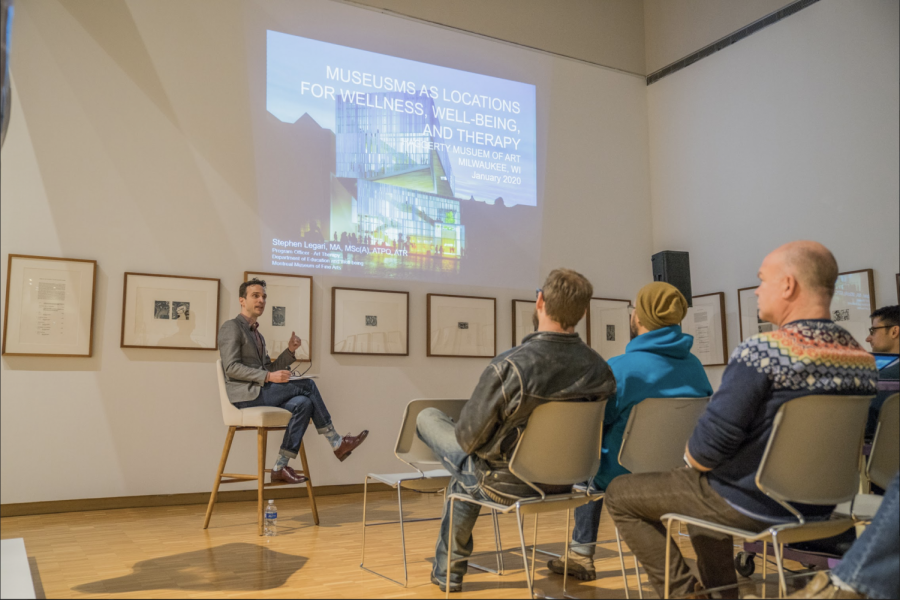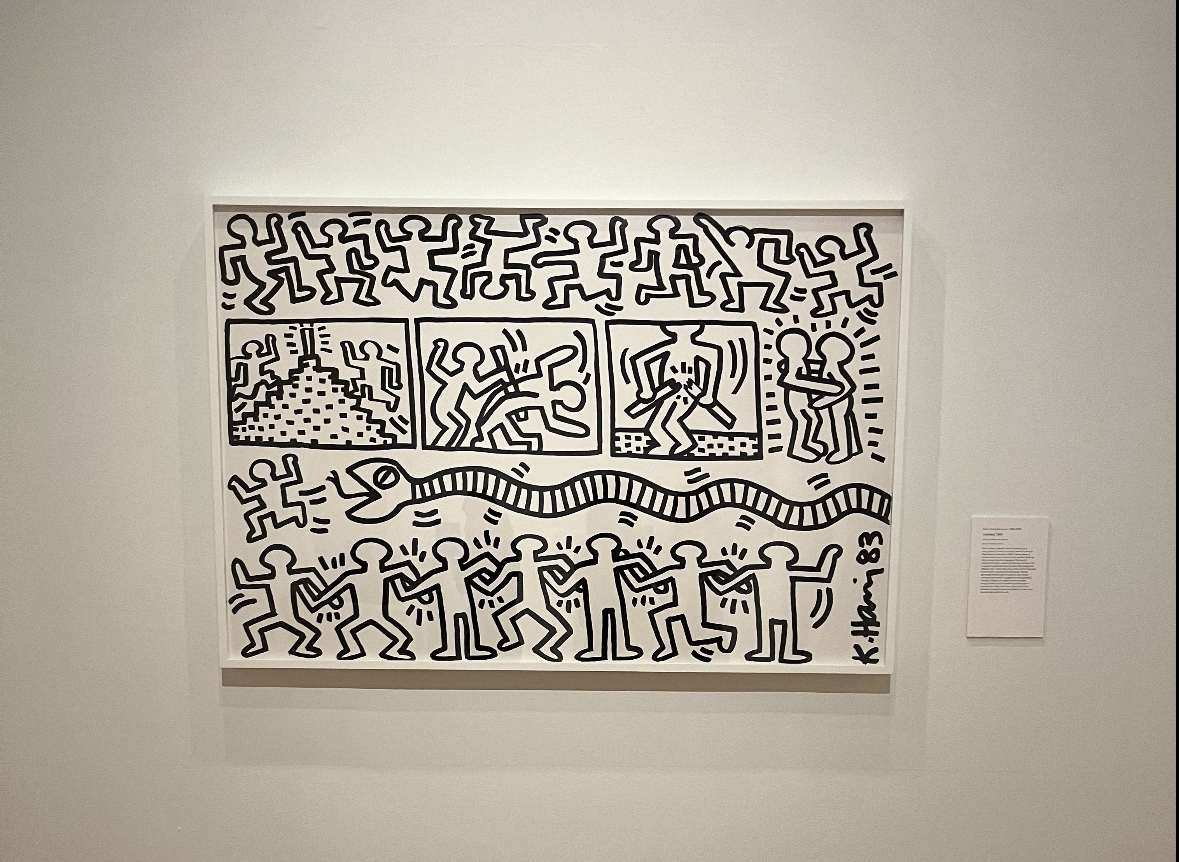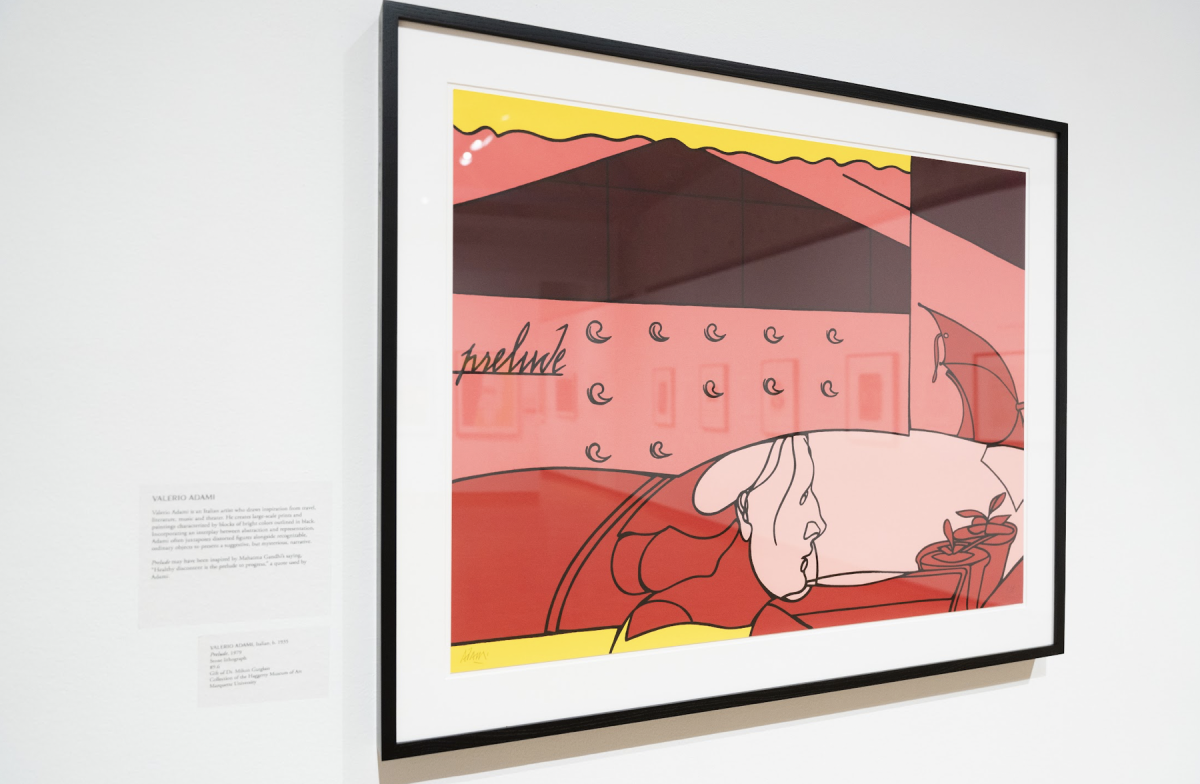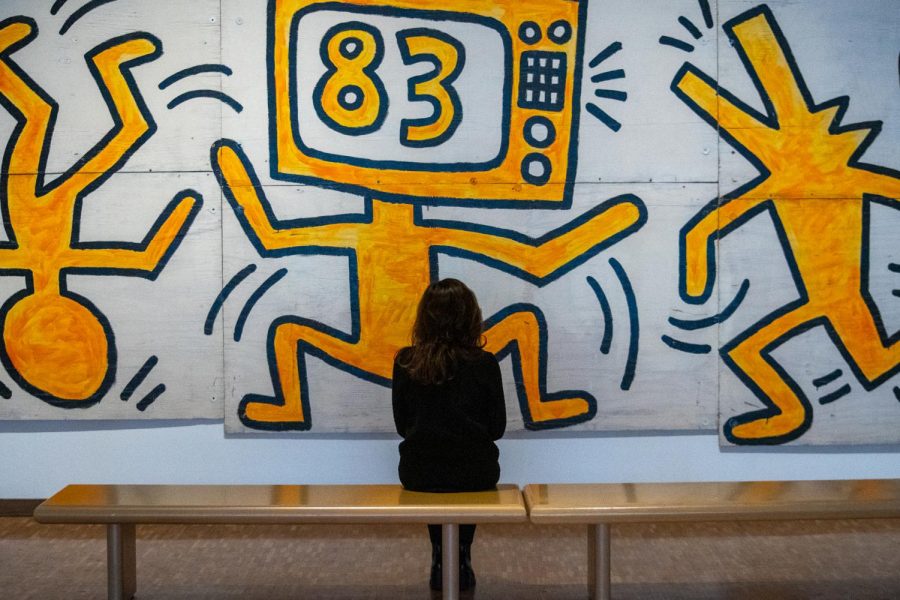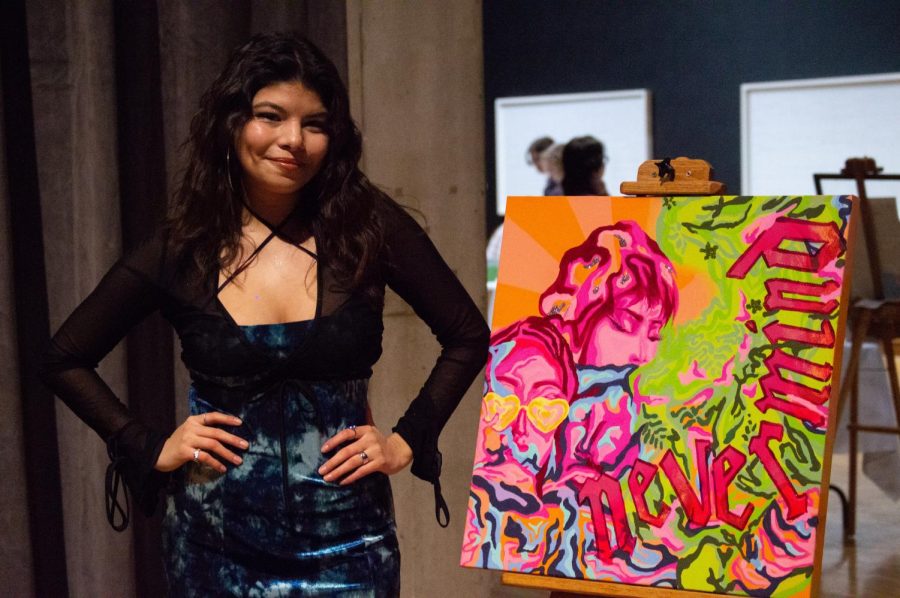Marquette University’s Haggerty Museum of Art hosted art therapist Stephen Legari Thursday night as he talked about his work relating to art and healing.
Legari is a program officer for art therapy at the Montreal Museum of Fine Arts. He works as part of a team that provides therapeutic, well-being, wellness and social inclusion activities in the museum. Susan Longhenry, director and chief curator at the Haggerty, invited Legari because of the connection she saw between his work and the current exhibit at the museum.
“This semester the Haggerty is presenting the exhibition ‘Toward the Texture of Knowing,’ which has its roots in conversations that we were having with Department of Philosophy faculty members,” Longhenry said in an email. “I believe strongly that meaningful art museum experiences can, and should, play a powerful role in helping all of us … to not just survive in this world, but to really thrive, flourish and live a life of deep fulfillment and meaning during the short span of time that we’re on this planet.”
Some Marquette classes have interacted with the exhibit. On the morning of Legari’s talk, he discussed authenticity and the self with a class that was learning about authentic experiences. He said he answered questions such as “What is an authentic expression of who we are?” and “What, artistically, is a real or fake art experience?”
“I knew that art would help express people’s opinions and thoughts and help them communicate, but I didn’t exactly know how much of an impact it actually made until this presentation,” Justine Kwak, a first-year student in the College of Health Sciences, said. She attended the event for her Foundations in Philosophy class.
“I realized that art for so many people is a way to escape and get away and an actual way to show your emotions, because communication can be really hard sometimes,” she said.
“I hope there is something in there that resonates with the Marquette community. As we think about our own development, our own identity, how we express ourselves,” Legari said. “As a therapist, I’m particularly interested in how people make meaning out of what they express and how that is validated back to them.”
Legari said he also focuses on how he can give back after his own healing experiences to help others achieve that same sense of well-being.
Legari also said he believes that the values of service learning, community participation and social justice-oriented work are important at Marquette.
On his motivation for working in art therapy, Legari said as he was recovering from illness, he encountered many people who helped him on his journey and “found that art was a great contributor to that recovery.”
“When I was beginning to search for the next chapter in my career, I just thought, ‘Is there something that includes both art and healing?’” Legari said. “I was naive not to know a lot about art therapy at the time. Fortunately for me, the city I live in … has an art therapy program.”
Legari said he was especially drawn to the connection between art and healing because of his personal experiences.
“That’s what drew me to it at first, in some ways this very uninformed idea about what exactly is the connection between art and healing and art and recovery,” Legari said. “And now many years later I have the privilege of working with people and seeing it happen over and over and over again.”
Legari’s art therapy programs at the Montreal Museum of Fine Arts work with many groups, including people who are in treatment or remission for cancer, young adults who have a communication disability such as deafness or stuttering, people who have experienced trauma — particularly because of violent crime — and women who are undergoing significant life transitions. Legari added that there is a community studio that anyone can drop into.
He said some groups come in once a week while others come in once a month.
“They’ll also differ in terms of goals,” Legari said. “If you’re working with people who are bereaved, the goals are going to be more around following the grieving process through rather than, say, people who are living with trauma. While there might be grief involved you’re gonna be working more specifically around their ability to tolerate that trauma as it shows up in session.”
Longhenry said art museums are not necessarily about buildings, collections or exhibitions, but the experiences people have with the original works of art. She said those experiences can improve intellectual, spiritual, social, emotional and physical health.
As Legari works with a wide array of people, each with different treatment methods and goals, he said he has seen the positive effect art therapy can have on many types of people.
“I think that art therapy is potentially a good fit for anyone in the same ways that therapy can be a good fit for anyone,” Legari said. “They offer a way of somebody connecting with the wounded part of themselves. Art therapy is particularly awesome because it requires absolutely no experience with art. … It draws upon the fact that just because we are existing, we are creative beings. It can really meet someone where they are.”
Legari said that the majority of his funding comes through generous foundations who want to support arts and healing initiatives.
Following Legari’s visit, Longhenry said the Haggerty is planning a series of programs that activate the space as a place for reflection, contemplative practice and mindfulness. Those programs include Mindfulness Meditation sessions with Larry Birkett, an Art Therapy programming series by Mount Mary University and yoga experiences led by Catey Ott Thompson, an adjunct instructor of digital media & performing arts, and Carolyn Swabek, the director of the Trinity Fellows.
“I could think of no better way to launch this series than through a talk by Stephen Legari that frames these issues through the lens of progressive art museum theory and practice,” Longhenry said in a email.
Legari said being at the Haggerty was a “delightful” experience for him, because of the people and because of the exhibition itself.
“The theme of the exhibition has been a source of my own contemplation,” Legari said. “As I’m listening to myself talk to folks I’ve never met before, I also realize I’m having my own experience at the Haggerty at the same time. It’s something that will resonate with me as I travel back to Montreal.”
This story was written by Shir Bloch. She can be reached at shir.bloch@marquette.edu.

